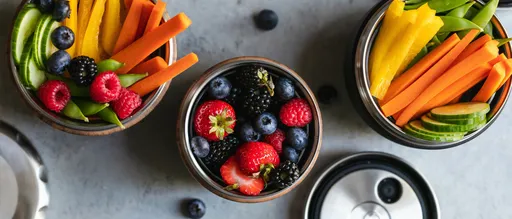“And there are just a few “ingredients” needed to make a healthy human—real, whole, fresh food, nutrients (vitamins and minerals), light, water, air, sleep, movement, rhythm, love, connection, meaning, and purpose.” ~ Dr. Mark Hyman
Energy as a Byproduct of The Life We Lead
In our current culture, energy is often an elusive resource and one that so many of us lack. It turns out that lacking energy is not just a symptom of illness but a product of a culture that is as nutrient, oxygen, and movement starved.
The contributors can be equally mental and physical when it comes to lacking (or producing) energy. Those factors are individual but not unpredictable when we know the person’s lifestyle and health habits.
In our society, many aspects of our daily lives do not stack the odds in our favor energy-wise. Things like indoor lighting and blue lights from devices at night, more fluid division of labor in childcare, and jobs that often require us to sit at a desk in front of a computer eight hours a day, can all add up to an energy-depleted state overall.
To make matters worse, our food often comes from nutrient-depleted soils, and food regulations are lacking regarding hidden ingredients, increasing our overall toxic burdens.
The good news is many of those contributing factors can be modified when we understand what they are. From ruling out particular health conditions to tweaks in nutrition and our daily routines, having sustained energy throughout the day is an achievable goal for most of us.
Read below for some of the most high-yield and science-backed ways to improve and sustain your energy throughout the day.
7 Ways to Sustain Your Energy Throughout the Day
1. Movement Outside First Thing in the Morning
This one practice is a foundational keystone habit for many of our clients at Tiger Medical Institute.
Why? Because it combines several habits in one that all contribute to sustained energy and the overall health of our minds and bodies.
Early Morning Light Exposure
In a study aiming to regulate the sleep schedules of self-professed ‘night owls’, early morning light exposure was a primary factor in improving sleep quality and quantity.
However, the effects of that study do not only apply to night owls. Early morning light exposure is a powerful way to modify our circadian rhythms, which have a massive impact on not just our sleep but our hormones, our stress levels, and our energy levels throughout the day.
Early morning light exposure will help improve your morning cortisol levels and the energy that ensues, but it will also help you sleep better that night, leading to improved energy the next day.
Movement
We all know exercise is ‘good for us’, but many don’t think about why. The research on walking alone is incredible in terms of its breadth.
Not only can walking lessen depression and anxiety, but it can also decrease the risk of countless chronic illnesses, including heart disease, diabetes, and even all-cause mortality.
Although a run may offer additional benefits for some, and resistance training has countless other benefits, walking alone is a great place to start.
When it comes down to it, any movement in the morning and especially outside, is one of those keystone habits that can contribute to lowered stress levels, increased activation, and energy while also preventing chronic illness at the same time.
Increase in Oxygen and Potentially Time in Nature
Oxygenation is another energy factor and is just one of the many reasons that time outside can help improve our energy.
Like in anemia, when our cells lack oxygen, sitting inside all day in stale air, and even worse, if we’re in a sealed office building, we lack the optimal oxygen levels to replenish our minds and bodies.
If you can get outside in the morning, that’s a great start. Consider adding in a walkout after lunch as well – a time when your energy may dip as your digestive system is working hard and stealing power away from other systems of the body.
You might be surprised by the added benefit of something simple, like a few fresh air breaks throughout the day.
2. Keep a Consistent Bed/Wake Time
This is one of the most widely agreed upon sleep hygiene practices.
Dr. Matthew Walker, a world-renowned sleep expert, emphasizes the critical nature of regular sleep and wake time.
Sleep often suffers when your circadian rhythms are off-kilter in deep and REM sleep areas. These are critical for getting the rest and restoration you need to keep going strong energy-wise throughout the day.
Dr. Walker suggests picking a regular wake time (say 7 am) and then, if you need to make any changes, not waking up more than ½ an hour before that time, or ½ an hour after that time, to keep it consistent.
This habit has been shown in a lot of research to be the most critical aspect of sleep hygiene.
3. Prioritize Stress Management
Of all the reasons for daytime fatigue, stress is one of the most common and often overlooked culprits.
Because self-awareness is often difficult to cultivate, many of us may not even realize when we’re stressed, let alone when our fatigue symptoms are caused by background stress.
For example, we may not link a trauma history with our current lack of energy. Or we’re constantly worrying and overthinking in a loop, which uses tremendous power.
So prioritize stress management if you suspect that may play a part in daytime fatigue. That can look many different ways, but consider a few techniques below.
Talking with a Friend or Therapist
Unprocessed negative emotions can take an incredible toll on our energy levels, most of which goes beyond our conscious awareness.
The need for social connection can not be overstated, and research suggests that simply talking about what’s concerning us is a great way to release stress and process our worries and struggles.
Lightening Your Load
If you have ‘too much on your plate,’ consider what you might be able to cut out. There may be activities you’re engaging in that are non-essential and even draining your energy instead of contributing to it.
Meditation
This one is a no-brainer. However, so few of us practice it. The evidence is overwhelming that meditation can calm our minds, improve focus, and release stress.
Consider adding 5 minutes of meditation before work and five after lunch. Just 10 minutes a day can make a difference in our overall mental state and stress levels.
Non-Sleep Deep Relaxation (NSDR)
This technique can restore us when we’re in a mild sleep-deprived and stressed state.
Check out some YouTube videos – it’s also referred to as ‘Yoga Nidra’ and is a great way to boost yourself if you’re feeling sluggish in the middle of the day.
4. Hydration
Research shows that simple dehydration can affect our cognitive function, and something as simple as rehydrating often can make us more alert and focused.
Consider carrying a reusable water bottle with you at all times, and make sure to have one at your desk.
Simple things add up, and mild dehydration is a clearcut factor in daytime fatigue.
5. Low Glycemic Diet
People need clarification now on what an optimal diet looks like. Still, the basic premise of low glycemic is to keep your blood sugar level with less sugar and more protein and complex carbohydrates like vegetables.
Start the Day with Protein
An easy way to start your day on the right track, blood sugar, and energy-wise, is to start with protein.
A quality protein shake with about 20 grams of protein, or two eggs and avocado, for example, are great ways to ensure you don’t have a dip or start craving snacks with refined carbohydrates and sugar later in the day.
6. Start With Some Basic Supplements
For this one, it’s often a good idea to consult with a Naturopathic Doctor or Functional Doctor regarding where to start for your unique physiology. However, a few essential supplements from a quality brand can help:
- Vitamin D, primarily if you work indoors
- Magnesium at night, as most are depleted, can relieve stress and sleep
- B complex, particularly if under specific stress or following a vegetarian diet
- Iron in heme form, if you’re a menstruating female or have low levels
These are just a few supplements that can help. Talk to your doctor or healthcare practitioner about which is best for you.
7. Get Labwork Done
Start with Routine Labwork
A great place to start is ensuring you have your routine labwork from an annual physical done with your Primary Care Provider.
Markers in a complete blood count, such as hemoglobin (iron) and ferritin, as well as thyroid markers such as TSH and T3, and T4, are all markers that can contribute to daytime fatigue if they’re off.
If your essential blood work is off, you will continue struggling.
Explore Further with a Functional Doctor
If daytime fatigue is an ongoing issue despite your best efforts, and nothing comes up in your essential blood work, it might be time to explore further.
A Functional Naturopathic or Medical Doctor can investigate further into things like nutrient status, gut health, and inflammation, all of which can contribute to fatigue.
They can often apply those results to specific treatment options and nutritional interventions for your needs.
Working with a Functional Naturopathic or Medical Doctor will allow you to look deeper at some of the physical contributors to fatigue and get to the root cause through further lab work and discussion about your lifestyle and the presentation of your symptoms.
If you suspect that unprocessed negative emotions or mindset are a contributor, you may also wish to explore the services of a highly skilled life coach or psychotherapist.
Next Steps to Improve your Energy Levels Throughout the Day
You have what it takes inside you to make a definite choice that will change the future trajectory of your health.
Our team at Tiger Medical has the experience, clinical skills, and coaching acumen to help you get your health and energy back.
To talk to one of our professionals, click here to schedule your call!
For further reading, view the following articles on our learning center:



 7min to read
7min to read

 8min to read
8min to read